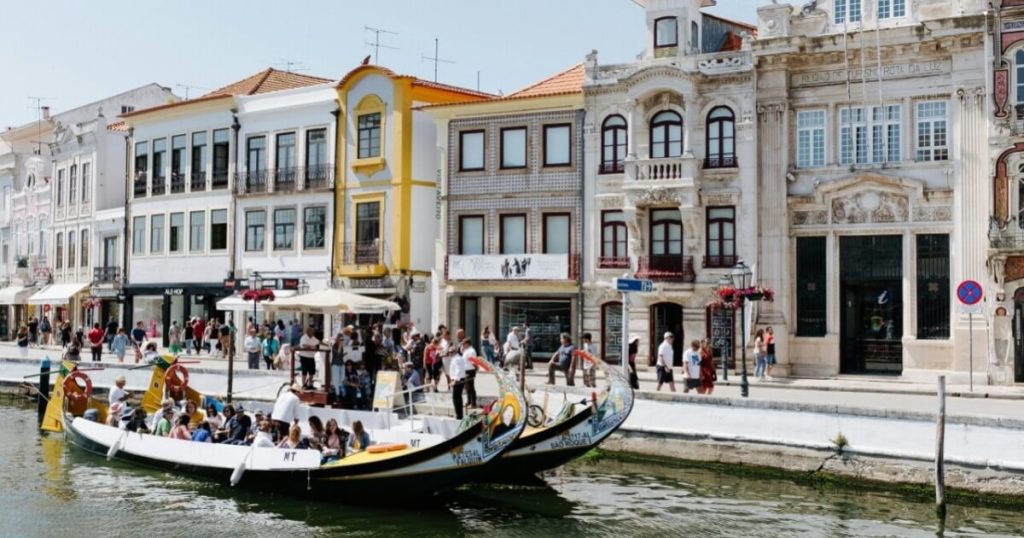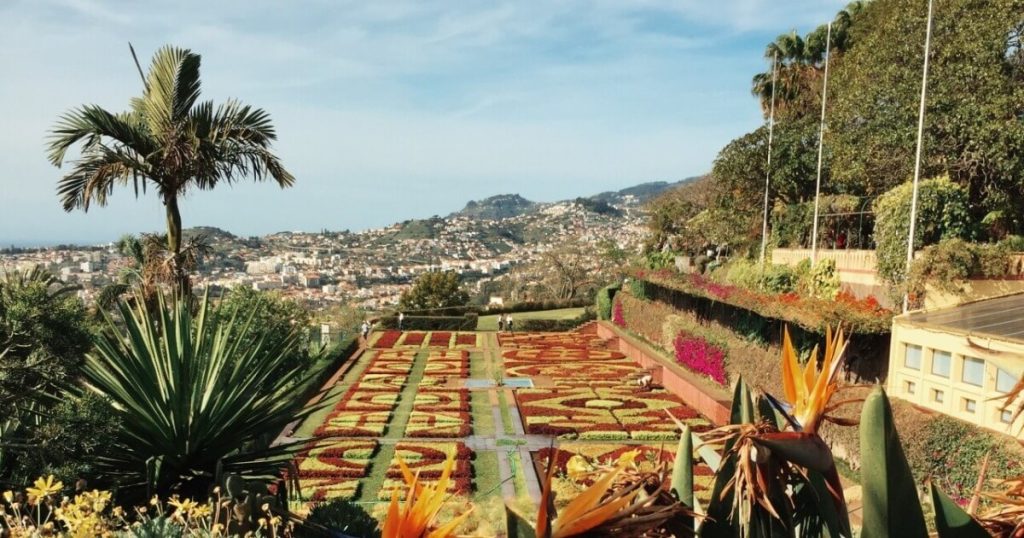Did you know owning property in Portugal means paying annual property tax rates? These rates range from 0.3% to 0.45% for urban and 0.8% for rural properties.
The Portuguese call this annual property tax Imposto Municipal sobre Imóveis (IMI). Property owners must pay several taxes, including a 0.8% Stamp Duty and property purchase tax (IMT) that can reach 10%. The tax system might seem daunting at first.
Understanding IMI’s workings matters if you own or plan to buy property in Portugal. The Portuguese Tax Authority calculates this municipal tax based on your property’s Taxable Asset Value (VPT).
You must pay IMI every year, regardless of your residency status. The payment schedule depends on how much you owe. You’ll make a single payment for amounts under €250, two payments between €250-€500, and three payments when it’s over €500.
Each municipality in Portugal sets its own IMI rates within government limits. This creates different rates in different regions, making the system unique.
Table of Contents
- Getting Started: What You Need Before Paying Property Tax
- Taxes You Pay When Buying Property
- Annual Property Tax Portugal: IMI Explained
- Additional Property Tax (AIMI) for High-Value Properties
- How to Calculate Your Property Tax in Portugal
- When and How to Pay Property Tax
- Exemptions and Reductions You Should Know
- Conclusion about Annual Property Tax in Portugal
This piece covers everything about Portugal’s property tax system. You’ll learn how to calculate your IMI, understand payment schedules, find potential exemptions, and optimise your tax position as a property owner.
Getting Started: What You Need Before Paying Property Tax
You must complete several key steps before managing your annual property tax obligations in Portugal. These basic requirements will help you register, get tax notifications, and make payments smoothly.
Why do you need a NIF (Tax Identification Number)
The Número de Identificação Fiscal (NIF) is your ID for all financial transactions in Portugal. This vital number is required to buy property, open bank accounts, and handle tax matters in the country.
Portuguese nationals automatically get their NIF when they apply for a Citizen’s Card. Foreign property owners need to apply for this ID number separately. You can get a NIF through several options:
- Book a face-to-face appointment at a local Tax Office (Finanças)
- Visit Citizen Shops (Lojas de Cidadão)
- Use the Tax Office’s e-counter through a tax representative (if you live outside the EU)
Getting a NIF costs nothing and marks your first step toward tax compliance in Portugal. You’ll need this ID number to set up direct debits for tax payments and access the Finance Portal (Portal das Finanças) to manage your taxes online.
Portuguese laws about NIF requirements changed in 2022. Only people involved in legal tax matters, like owning property in Portugal, need a tax representative to get a NIF.
Opening a Portuguese bank account

A Portuguese bank account makes paying your taxes much more manageable. When paying your annual property taxes, you won’t face hefty international transaction fees.
Here’s what you need to open a bank account in Portugal:
- Valid identification (passport)
- Proof of address (recent utility bill or letter)
- Your NIF number
- Proof of income or employment
- Initial deposit (usually €200-€300, depending on the bank)
Your new account lets you set up easy payment methods for your IMI and other taxes. You can pay online through the Finance Portal or use ATMs across Portugal.
Property owners living abroad find this bank account particularly useful for tax payments. You can pay your IMI by logging into your Portuguese account, clicking “Payments”, then “State – Pay the State,” and entering details from your tax notice.
Role of a tax representative for non-residents
Portuguese law requires you to appoint a tax representative if you live outside the European Union, Norway, Iceland, or Liechtenstein and own property in Portugal. Your representative works with Portuguese tax authorities to keep you compliant.
A fiscal representative helps you by:
- Getting all tax correspondence from Portuguese authorities
- Managing tax filings and payment notices
- Submitting required tax returns and declarations
- Responding to official communications (usually within 10-15 days)
Your representative must be based in Portugal and have a registered Portuguese address. You have 15 days after buying property to appoint your tax representative. Missing this requirement can lead to fines between €75 and €7,500.
EU residents don’t legally need a tax representative, but many choose one for convenience. Non-EU property owners must have one.
Your representative helps you avoid missed deadlines, wrong filings, and communication issues with tax authorities. They handle everything related to your annual property taxes, from IMI notices to payments and documentation.
These three basics – a NIF, Portuguese bank account, and tax representative (if needed) – will help you manage your property tax obligations in Portugal smoothly and avoid penalties.
Taxes You Pay When Buying Property
Buying property in Portugal comes with several one-time taxes and fees you need to pay to become the legal owner. These costs add up to 6-8% of the property value for properties under €1 million and reach 10% for pricier properties. Understanding these upfront expenses is vital to budgeting your property purchase.
IMT (Property Transfer Tax)
IMT (Imposto Municipal sobre as Transmissões onerosas de Imóveis) represents a municipal tax buyers pay to transfer property ownership in Portugal. You must pay this tax before signing the final deed. If the transfer happens outside Portugal, you have 30 days to complete the payment.
IMT rates change based on these factors:
- Property type (urban or rural)
- Property value
- Intended use (primary residence or secondary home)
- Buyer’s tax residency status
Urban properties meant as primary residences follow this progressive scale:
- Up to €92,407: 0%
- €92,407 to €126,403: 2% (minus €1,848.14)
- €126,403 to €172,348: 5% (minus €5,640.23)
- €172,348 to €287,213: 7% (minus €9,087.19)
- €287,213 to €574,323: 8% (minus €11,959.32)
- Above €574,323: 6%
Secondary residences start at 1% for properties valued up to €92,407 and follow a similar scale. Rural properties have a flat 5% tax rate. Commercial properties and building plots are taxed at 6.5%.
Residents from blocked jurisdictions (countries with favourable tax schemes) pay a fixed 10% rate.
You might qualify for exemptions if you:
- Buy buildings to resell
- Purchase properties to rehabilitate
- Conduct corporate restructuring operations
- Own buildings classified as national/public/municipal interest
- Are a first-time buyer under 35 buying property up to €316,272 as permanent residence
Stamp Duty (Imposto do Selo)
Stamp Duty (Imposto do Selo) stands as Portugal’s oldest tax. Buyers pay a fixed 0.8% rate based on the purchase price or property’s fiscal value, whichever is higher. This tax applies to legal documents and transactions not covered by VAT.
You need to pay Stamp Duty before completing the purchase contract. The tax covers:
- Property deed (0.8% of property value)
- Property-related contracts
- Bank mortgages (0.6% for loans above €5,000)
Companies that own properties don’t pay Stamp Duty.
The Stamp Duty receipt proves your purchase documents’ legal validity during deed signing.
Notary and registration fees
Property transfers in Portugal need a notary’s certification. Notaries play a significant role as they:
- Make documents legal with their signature and stamp
- Collect taxes for the state
- Ensure legal compliance in transactions
You’ll spend between €500 and €1,000 on notary and registration fees. The final amount depends on:
- Your chosen notary office
- Property value
- Transaction complexity (including Title Deed length)
These fees include notary services and land registry registration, making you the legal owner.
Portuguese notaries have a minor role compared to other countries, explaining their lower fees. Still, getting a lawyer (costs about 1% + VAT of purchase price) helps protect your interests during the buying process.
The deed signing requires several documents including IMT and Stamp Duty payment proof, property descriptions, and identification papers. After completion, you become the official owner and pay annual property taxes in Portugal.
Annual Property Tax Portugal: IMI Explained
Buying property in Portugal means paying the Imposto Municipal sobre Imóveis (IMI) every year. Unlike the one-time fees you pay when purchasing, this annual tax becomes part of your long-term costs.
What is IMI and how does it work?

The IMI serves as Portugal’s annual municipal property tax. All property owners must pay it – both individuals and companies – whatever their residency status. The Portuguese government introduced IMI on December 1, 2003, as a replacement for the Contribuição Autárquica system.
Property owners listed as of December 31 from the previous year must pay this tax. Yes, it is mandatory even for properties that don’t generate income—local government services and infrastructure across Portugal benefit from this revenue.
The Portuguese Tax Authority (Autoridade Tributária e Aduaneira or AT) sends payment details to property owners by April 30 each year. If registered on the online tax portal, you’ll get this notice through regular mail or the electronic system.
Here’s when you need to pay:
- €100 or less: One payment by May 31
- €100 to €500: Two payments – May 31st and September 30th
- More than €500: Three payments – May 31st, August 31st, and November 30th
Article 116 of the General Regime of Tax Offences states that late payments can lead to interest charges or fines.
IMI rates for urban and rural properties
Your property’s classification and location determine the IMI tax rate. The Portuguese tax system splits properties into two main categories:
Urban properties (residential buildings, apartments, commercial spaces):
- Tax rates run from 0.3% to 0.45% of the property’s taxable value
- Lisbon uses the lowest rate of 0.3%
- Porto charges 0.325% while Faro sets it at 0.35%
Rural properties (agricultural land, forests):
- A standard 0.8% rate applies nationwide
Properties owned by entities in blocked tax jurisdictions pay a much higher rate of 7.5%.
The math is simple: IMI payable = VPT × Municipality Tax Rate. Let’s look at an example. A property with a VPT (Valour Patrimonial Tributário) of €100,000 in an area with 0.35% IMI would cost: €100,000 × 0.0035 = €350 annually.
Your IMI payment depends on your property’s taxable value and the local municipal rate. The VPT calculation includes factors like area, location, construction year, and quality.
How municipalities set IMI rates
Local municipalities in Portugal have the power to set their own IMI rates. This creates different rates throughout the country.
Municipal councils must follow these government guidelines:
- Urban properties: Between 0.3% and 0.45%
- Rural properties: Fixed at 0.8%
These rates can change. Municipalities adjust them yearly based on their budget needs. Your IMI payment might change even if your property value stays the same.
Municipalities can charge more in exceptional cases:
- Buildings or apartments empty for over one year
- Properties in ruins not damaged by natural disasters
- Building plots in urban pressure zones
The IMI rate in these situations can jump up to ten times higher, with possible 20% yearly increases after that.
Your municipality’s current IMI rate is on their website or at the local Finance office (Finanças). The official Finance Portal shows this information after you log in with your NIF and password.
Additional Property Tax (AIMI) for High-Value Properties

Portugal charges an extra property tax on high-value real estate beyond the standard IMI tax. The Adicional ao Imposto Municipal sobre Imóveis (AIMI) targets luxury properties and serves as a wealth tax on high-value real estate holdings.
Who pays AIMI and when
AIMI applies if you have urban residential properties and building plots in Portugal. The combined Taxable Asset Value (VPT) must exceed specific thresholds. Regular IMI affects all property owners, but AIMI targets owners with extensive real estate portfolios.
Portuguese tax authorities calculate AIMI based on the total value of eligible properties listed in the land register on January 1 each year. Properties exempt from IMI the previous year usually stay outside AIMI’s scope.
AIMI follows a different timeline than standard IMI:
- Assessment happens in June every year
- Payment comes due between September 1-30
You must pay this extra tax in one lump sum, unlike regular IMI, which offers instalment options.
AIMI tax brackets and exemptions
AIMI’s tax structure employs a progressive system where rates increase with property value. Three key thresholds determine your tax obligation:
- 0.7% on property values over €600,000 up to €1 million
- 1% on values between €1 million and €2 million
- 1.5% on property values above €2 million
Companies pay a flat rate of 0.4% on their total property holdings without the €600,000 exemption threshold that individuals get. Entities in tax havens or blocked jurisdictions pay a much higher rate of 7.5%.
Some properties get complete AIMI exemptions:
- Properties used for commercial, industrial, or service purposes
- Buildings that municipal enterprises own
- Social housing and construction cooperatives
- Properties that residents’ associations own
- Buildings exclusively for social or controlled-cost housing owned by cooperatives
- Properties used for forestry in forest management plans
Note that AIMI calculations only look at the value exceeding exemption thresholds. Take a property worth €800,000 – you’d pay the 0.7% AIMI tax on €200,000 (over the €600,000 threshold).
Joint ownership and AIMI implications
Married couples and legal partnerships get better terms through joint taxation options. Couples can pool their allowances, which doubles the exemption threshold from €600,000 to €1.2 million before AIMI kicks in.
This works even if only one partner legally owns the property, as long as they choose joint taxation. The tax only applies to values exceeding this higher threshold once jointly declared.
To cite an instance, here’s how a married couple with joint ownership of a €1.5 million property would calculate their AIMI:
- €1.5 million total property value
- €1.2 million exemption threshold for joint filers
- AIMI: 0.7% on €300,000 = €2,100
Couples must actively choose the joint taxation option – it doesn’t happen automatically. This choice could cut your tax bill in half compared to individual assessment.
Properties in undivided inheritance (where multiple heirs share ownership) get the standard individual €600,000 exemption for the whole inheritance, not each heir’s share. Corporate co-ownership structures don’t get any exemption threshold.
These AIMI tax rates haven’t changed since their last update in 2019. The Portuguese Tax Authority calculates AIMI separately from your regular IMI yearly and sends different assessment and payment notices.
Financial planning for Portugal’s real estate market depends on understanding these extra tax implications if you own high-value property.
How to Calculate Your Property Tax in Portugal
Calculating your annual property tax in Portugal requires understanding several components determining debts. By becoming skilled at the calculation process, you can better plan your finances and verify your tax assessment. Let’s get into how the Portuguese tax system determines your yearly obligations.
Understanding the VPT (Taxable Asset Value)
The VPT (Valour Patrimonial Tributário) is the foundation of your property tax calculation in Portugal. The Tax Authority assigns this official value as an administrative estimate of your property’s worth specifically for taxation purposes. Remember that the VPT rarely matches your property’s market value or purchase price.
The Portuguese Tax Authority calculates the VPT using a complex formula defined in the Municipal Property Tax Code:
VPT = Vc × A × Ca × Cl × Cq × Cv
Where each component represents:
- Vc: Base construction value per square meter
- A: Gross construction area plus dependent areas
- Ca: Allocation coefficient (based on property use)
- Cl: Location coefficient (geographical area value)
- Cq: Quality and comfort coefficient (amenities like garages, pools)
- CV: Age coefficient (reflecting property depreciation over time)
The base construction value (Vc) combines the average construction cost per square meter (fixed annually by government ordinance) plus 25% of that value for the land. Residential properties typically have an allocation coefficient (Ca) of 1.0.
Your property’s current VPT appears in the Property Tax Register (Caderneta Predial), which you can access through the Finance Portal. This value updates automatically every three years or when significant changes happen to your property.
Using the IMI formula
The annual IMI calculation becomes simple once you know your property’s VPT. The basic formula is:
IMI = VPT × Municipality Tax Rate
Municipality tax rates vary by location but typically fall between:
- 0.3% to 0.45% for urban properties
- 0.8% for rural properties
- 7.5% for properties owned by entities in blocked tax jurisdictions
To name just one example, a property with a VPT of €150,000 in Lisbon with a municipal rate of 0.3% would have an annual IMI of: €150,000 × 0.003 = €450
Since this amount is between €100 and €500, you would pay in two instalments – one by May 31 and another by September 30.
This is a big deal as high-value properties can lead to larger payments. A property with a VPT of €250,000 in a municipality with a 0.45% rate would generate an annual IMI payment of €1,125.
Online tools and calculators
The Portuguese tax system provides digital resources that are a great way to estimate your property tax obligations accurately. These tools help verify if your official assessment is correct.
The Portal das Finanças (Finance Portal) has an official IMI calculator where you can:
- Enter your property’s location
- Input the VPT
- Specify property type
- View applicable tax rates
You can access this calculator by logging into your Portal das Finanças account with your NIF and password. The SIGIMI (Sistema de Informação Geográfica do IMI) tool on the Finance Portal helps determine your property’s location coefficient through an interactive map.
The location coefficient value appears when you search your property’s address and click on the building. This coefficient affects your VPT calculation significantly.
You can find additional calculators on real estate and financial websites. These tools have accessible interfaces and extra guidance. These calculators give instant IMI estimates when you enter simple property details like value, type, and location.
Note that these calculations stay estimates until the Tax Authority provides your official assessment. The official notification from Autoridade Tributária confirms your exact obligation.
When and How to Pay Property Tax
Portuguese property tax payments follow a clear timeline with specific deadlines depending on your debt. You need to know the right time and way to meet these obligations to avoid penalties and stay in good standing with tax authorities.
Annual payment schedule and deadlines
The Portuguese Tax Authority (Autoridade Tributária) sets different payment schedules based on your property’s total IMI assessment. Larger amounts can be paid in instalments:
- €100 or less: Paid in a single instalment due by May 31 €100 and €500: Paid in two instalments due by May 31 and September 30
- More than €500: Paid in three installments due by May 31st, August 31st, and November 30th
It’s worth mentioning that these deadlines sometimes change. For example, the May 2025 instalment deadline was extended to June 2025 by official order from the Secretary of State for Tax Affairs. Regular checks of the current official schedule on the Finance Portal are vital.
The tax system gives you flexibility with payments. You can pay the entire amount during the first payment period, whatever the total. Tax authorities clearly state that “you can always pay the full amount in May, regardless of the amount”.
Payment methods: online, ATM, or in person
The Portuguese tax system gives you several ways to pay your IMI. Each option offers different benefits in convenience and accessibility.
Online payment through the Portal das Finanças is the quickest way to pay. Here’s what you need to do:
- Access the Portal das Finanças website
- Authenticate with your NIF and password, Digital Mobile Key, or Citizen Card
- Select “All Services” from the left menu
- Choose “Municipal Property Tax (IMI)”
- Click “Consult Collection Notes”
- Select the tax year (usually the previous calendar year)
- View your payment information and choose a payment method
You can then pay through homebanking, ATM reference, MB WAY app, or set up direct debit.
ATM payment is another simple option. Use the payment reference from your tax notice at any Multibanco machine in Portugal.
In-person payment locations include:
- Local tax offices (Finanças)
- CTT post offices
- Certain bank branches with protocols with the tax authority
These locations accept cash, card, or crossed cheques dated for the payment day.
Penalties for late payment
Missing IMI payment deadlines leads to financial consequences that grow over time. Your unpaid balance accumulates interest according to Article 116 of the General Regime of Tax Offences.
Late tax payments currently face a 4.786% annual interest rate. Daily interest adds up using this formula: (amount of tax due × interest rate × number of days outstanding) ÷ 365.
The consequences get more serious beyond interest charges. Tax authorities may start enforcement proceedings after 30 days of non-payment following notification, which could result in property seizure.
A €500 IMI payment one month late would add about €2 in interest charges. These costs might seem small, but add up quickly with larger amounts and longer delays.
Setting up alerts or automatic payments through your Portuguese bank account will help you meet every deadline. This approach ensures full compliance with your annual property tax obligations in Portugal.
Exemptions and Reductions You Should Know
Portuguese property owners can tap into the potential of various tax benefits and exemptions to reduce their annual property tax. These options offer great savings opportunities to qualified owners.
Temporary exemptions for new homeowners
Property owners can enjoy temporary IMI exemptions that come with specific conditions. Your property’s taxable value (VPT) must stay below €125,000, and your household’s annual income should not exceed €153,300. This tax relief runs for three years, and you can claim it twice in your lifetime. The local municipal assembly might extend this period by two more years, which means you could benefit from a five-year exemption.
Households earning less than €15,469.85 annually (as of 2023) with properties valued under €67,260.20 automatically receive a permanent IMI exemption.
Discounts for families with dependents
The “Family IMI” program rewards households based on their number of dependent children. Here’s what you can save:
- €30 for one child
- €70 for two children
- €140 for three or more children
These deductions apply only to your primary residence. Your children must be listed as dependents on your IRS tax return. All but one of these municipalities in Portugal (273 out of 308) participate in this program, including major cities like Lisbon, Setúbal, Faro, and Coimbra.
Exemptions for rehabilitation and cultural properties
Buildings over 30 years old or those within Urban Rehabilitation Areas (ARUs) qualify for IMI exemptions lasting 3-5 years. The rehabilitation must boost the building’s conservation rating by at least two levels and achieve a minimum “Good” classification.
Buildings with national monument status or those deemed public/municipal interest get automatic IMI exemptions. Renovation projects also benefit from a reduced VAT rate of 6% instead of 23%.
You can check your exemption status through the Finance Portal using your NIF or visit a local tax office with your identification and property documents.
Conclusion about Annual Property Tax in Portugal

Property tax obligations are a vital part of owning real estate in Portugal. IMI rates change based on your property type. Urban properties get taxed between 0.3% and 0.45%, while rural properties have a fixed 0.8% rate. High-value property owners need to think about AIMI, too. This tax kicks in when properties are worth more than €600,000.
Getting ready for Portuguese property taxes takes some planning. You’ll need a NIF number and a Portuguese bank account. Non-EU residents must have a tax representative. Local municipalities set their rates within government limits, which explains why tax amounts differ across regions.
Your assessed amount determines when you pay. Larger sums can be paid in instalments. Put these payment dates on your calendar. Late payments rack up fees and interest at 4.786% yearly.
Smart property owners look for tax breaks. Families with kids, first-time buyers, and people fixing up old buildings might pay less. These tax breaks can significantly lower your yearly costs if you use them correctly
Your property’s VPT sets the tax amount using a formula. Market prices usually differ from this administrative value. You can estimate what you’ll owe with online calculators before official notices arrive.
Portuguese property taxes seem tricky initially, but become easier to handle once you know the basics. Monitor local rate changes, know when to pay, and check if you qualify for exemptions. This approach will help you meet your obligations and save money. With this knowledge, you can confidently tackle your yearly property tax duties in Portugal.
The founding of Madeira Corporate Services dates back to 1996. MCS started as a corporate service provider in the Madeira International Business Center and rapidly became a leading management company… Read more




